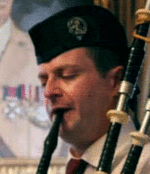
Playing the pipes is something a person does for life. For many of us it has provided a lifelong musical pursuit, and a source of great pleasure and interest. It makes sense to those who love the pipes (i.e. are obsessed with them) that Robert Reid, one of the finest pipers who ever played, could say that if he had his life again he ‘would spend it playing pipes’. He also said ‘piping is a disease for which they have never found a cure’.
There are many in the piping world who are always looking for something new, new tunes, new pipe band arrangements, new pitches for the chanter. Indeed, it seems there are those to whom innovation and development are what they enjoy most. I have nothing against it and I enjoy some new things myself, but mostly what I enjoy is what is old.
Piping, at least in my opinion and experience, is a nostalgic pursuit on a personal level and on a more general and historical one. If one has learned pipes from a young age (in my case, around 12), everything from the practice chanter to the pipes holds a nostalgic reminder of one’s early teens.
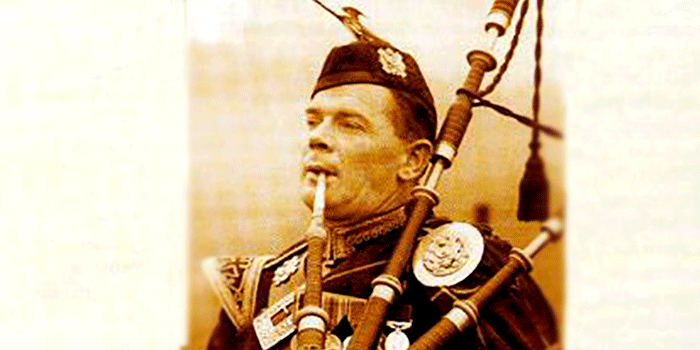
Practice chanters were always items of fascination for me, from the grey tiger striped Warnock my cousin gave me, to the blackwood ones older pipers had. These instruments were part of my early obsession with the pipes. The Piping Times (of which I was lucky to have a big stack given to me early on) was replete with Alexander’s advertisements for his full-sized practice chanter, his superior practice reed, and the like.
Alexander’s old black and white reeds were a rarity and had a special tone. I searched for, acquired and inevitably destroyed, a good number of these classic reeds made in three sections and sealed with a dollop of wax.
The smell of the pipes is another vivid memory. I was lucky in that when I started, hide bags and seasoning were still standard here in South Africa – as were cane drone reeds. The smell of a bagpipe, from opening the case to blowing up the bag, is something I certainly remember, and I’m sure most older pipers can relate to.
Playing the pipes is itself a connection with one’s former self – that smell, feel and sound is all a re-creation of something from one’s distant past. It is a profoundly nostalgic experience. Once the pipes are in tune, regardless of the overall pitch, the satisfaction is with us once more just as it was all those years ago.
Fundamentally, the playing of tunes played for many years, means the chanter is replicating personal experiences of the past. For example, with Lochanside I connect to past years of playing this wonderful melody on many touching occasions.
One of the great joys of music is to know a piece well and to have practised listening to it many times. This is the more so with classical pipe music, piobaireachd. It is not the first time one hears a tune which gives the greatest pleasure, more so the hundredth hearing.
The current experience meets with the expectation created by the many iterations heard previously. As the new performance of the old tune unites these memories and expectations, there is a sense of joy, and perhaps a feeling of transcending time and place.
It becomes somewhat irrelevant whether one is listening to Lament for the Children played beautifully now, on a perfectly tuned pipe, or 35 years ago by someone like Donald MacPherson. All of this, and so much more, is unified in the hearing of a great tune delivered on a beautiful pipe.
One thinks of old Willie Gray described in his later years standing by the hedge in a seniors’ home playing piobaireachd after piobaireachd on his silver pipes, playing ‘for the love of the thing’, playing for himself and the hedge.
It’s a profound image – his MacRae silver-mounted pipes reprising the tunes of his life, a connection to the music and himself, past and present.

There is also a link to a much longer span of history. All classical music requires training of the ear, hand and mind. To learn and perform piobaireachd at the highest level requires many years of study of the inflection and subtlety of this great music.
To delve into the tradition is to tap into hundreds of years of creativity and music, distilled along principled lines. It has always struck me as astonishing that anyone could view the tradition, truly interpreted, as restrictive or oppressive.
Some have abused it to dictate to others their own views. Our musical tradition has varied but has always adhered to certain core principles. Reid came from a different piping school to Malcolm MacPherson (the younger), yet both enjoyed and revered each other’s piping.
GS McLennan was steeped in his own line and held contrary views to Reid and MacPherson, yet they were all great admirers of each other’s music. John MacDonald was universally admired for his principled, disciplined artistry.
These are only a few examples, and those who know their history will think of scores of others – but the only true conclusion to be made is that the great pipers of the past almost universally appreciated each other’s music.
It’s rather sad that some people who have never had the opportunity of learning the true tradition, are often hostile to it.
-
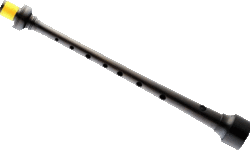 Pipe Chanters – Solo Poly or Solo BlackwoodPrice range: £130.00 through £265.00
Pipe Chanters – Solo Poly or Solo BlackwoodPrice range: £130.00 through £265.00 -
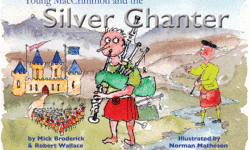 Young MacCrimmon and the Silver Chanter£8.50
Young MacCrimmon and the Silver Chanter£8.50 -
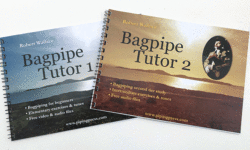 Tutor Books 1 & 2 in English or German£23.50
Tutor Books 1 & 2 in English or German£23.50
It takes many years of study, listening, and practice to fully understand Highland piping. It is a subtle art, but one which repays effort. To connect to our tradition is to be part of hundreds of years of musical distillation. The product, at least to the ear of an enthusiast, has a unique and irreplaceable quality.
Like a whisky matured for 25 or 30 years (and in the case of piobaireachd, more like 400), it has an indefinable quality and depth to it. Perhaps its most profound function is to transcend time and place, to allow the player and listener to be, if only for so long as the tune and the pipe may last, in a world of musical beauty and timelessness.
Piping is a profound and rewarding well of personal sustenance to which one returns endlessly and without loss of enthusiasm. Quite a magical thing in this sometimes rather drab and temporal world, and arguably something of unique value and spiritual transcendence.
















Nice article; thanks for share this.
“it’s rather sad that some people who have never had the opportunity of learning the true tradition, are often hostile to it.” Ugh, I was reading with interest until this trope popped up.
Nicholas
I feel it would be hard to me to add something to your article, you told all the reasons and feeling that we, pipers, have
I’ve been playing for fifty years, but however, my trip in piping has not reached its end, it’s indeed a no cure addiction, and I dinna wan’ tae be cured at’ a’
Long live our dear piping art, and keep on playing the old tunes, they are the roots without which, the present days piping could not exist
AMEN !!
As a child growing up in New York City where my dad was a member of the NYPD he and I use to attend a father and son communion breakfast sponsored by a catholic police organization the Holy Name Society. On one spring Sunday after the Mass at St. Patrick’s Cathedral, pop put his arm around my shoulders [I was about 8 yrs old] and told “me come on I want to show you something”. We walked about two blocks and there was the NYPD pipe band tuning up, I was in awe they seemed to be a hundred feet tall with their feather bonnets on; I was bitten by the piping bug and infected P/M Reid is quite correct there is no cure for this condition. But being a family of seven there was no money to take lessons. It wasn’t until I was 25 that I learned to play. I attended the COP summer school in California and met Seumas MacNeill, auditioned for him and he asked me what I like to play. When told him I liked to play slow airs his eyes open wide with his brows popping over his glasses.
He stated “that’s not piping in your veins it’s piobaireachd.” For the past six years I’ve been a proud member of the Piobaireachd Society loving every minute of it! I never once regretted my decision to learn this grand instrument. Pop was right the world stays free because of the pipes!
Ossian could not have done better.
The feel of the pipes, the smell of the hide bag, seasoning, cane reeds, the tunes… interpreting piobaireachd…old pipers gone on…and great pipers still here…
Now, with pipe bands, solos, and the occasional gig in your rear view mirror…why do we play?
As Dale Brown recently told me, “now we play for ourselves”.
Playing to the garden wall…and being flattered that the squirrels don’t run away…
Well done Nicholas…thank you.
Nice article, Nicholas. Willie Gray was my teacher’s teacher.
Nick, well written. I enjoyed you article. Thanks for sharing.
Best, Tom bauman
Brilliant article, Nick. I just LOVE the bit about the SMELL of the pipes. As you know but readers may not, learning the pipes at King Edward VII School, where the pipes were school property and handed down from old boy to new learner or dug out from some hidden shelf in some hidden dungeon room (which, itself, had a memorable smell), I am sure our pipes had a rather unique smell of their own! Certainly something that I recall quite vividly. On the note of piobaireachd, I was chatting with friend Hylton Cruickshank, Texas, this past weekend about his starting to play piobaireachd and how hard he was finding it. He told me that his band P/M had given him a tune to learn so I asked him what it was…”Too Long In This Condition”. I said there is no small tune in piobaireachd because they ALL teach you the nuances and requirements of the genre but what you get in return is piping dexterity, piping fitness and a deeper connection to the history of Scotland. I said that piobaireachd is often like a fine blue cheese. Younger players cannot understand what it is about but older players know it is the REASON, really, why the pipes were made in the first place. Thanks for writing this.
What a wonderful description of our great passion! Reading about Willie Gray’s playing to the hedge, reminds me of when I was on holiday in my teens, taking my pipes away from human ears, and playing to the hedgerow in a seemingly empty field: after playing for twenty minutes or so, I stopped for a breather, and, on turning around, there was a herd of cows patiently waiting for the next tune ! I have always enjoyed playing the pipes, surrounded by nature – in fields, woodland, on the beach, in the hills: spiritually uplifting !